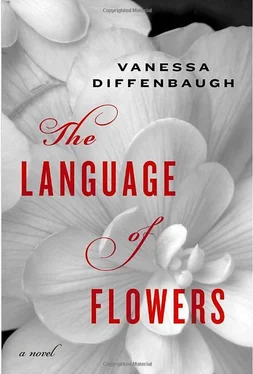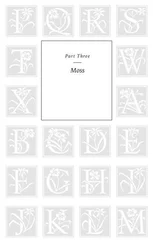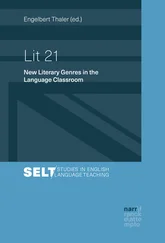Star-of-Bethlehem ( Ornithogalum umbellatum ) … Purity
Starwort ( Stellaria ) … Welcome
Stephanotis ( Stephanotis floribunda ) … Happiness in marriage
Stock ( Malcolmia maritima ) … You will always be beautiful to me
Stonecrop ( Sedum ) … Tranquility
Strawberry ( Fragaria ) … Perfection
Sunflower ( Helianthus annuus ) … False riches
Sweet briar ( Rosa rubiginosa ) … Simplicity
Sweet pea ( Lathyrus odoratus ) … Delicate pleasures
Sweet William ( Dianthus barbatus ) … Gallantry

Tansy ( Tanacetum ) … I declare war against you
Thistle, common ( Cirsium ) … Misanthropy
Thrift ( Armeria ) … Sympathy
Thyme ( Thymus ) … Activity
Trachelium ( Trachelium ) … Neglected beauty
Trillium ( Trillium ) … Modest beauty
Trumpet vine ( Campsis radicans ) … Fame
Tuberose ( Polianthes tuberosa ) … Dangerous pleasures
Tulip ( Tulipa ) … Declaration of love
Turnip ( Brassica rapa ) … Charity

Verbena ( Verbena ) … Pray for me
Vetch ( Vicia ) … I cling to thee
Violet ( Viola ) … Modest worth

Wallflower ( Cheiranthus ) … Fidelity in adversity
Water lily ( Nymphaea ) … Purity of heart
Waxflower ( Hoya ) … Susceptibility
Wheat ( Triticum ) … Prosperity
White Monte Casino ( Aster ) … Patience
Willow herb ( Epilobium ) … Pretension
Winter cherry ( Physalis alkekengi ) … Deception
Wisteria ( Wisteria ) … Welcome
Witch hazel ( Hamamelis ) … A spell

Yarrow ( Achillea millefolium ) … Cure for a broken heart

Zinnia ( Zinnia ) … I mourn your absence
When I began The Language of Flowers , I owned only one flower dictionary: The Floral Offering: A Token of Affection and Esteem; Comprising the Language and Poetry of Flowers , written in 1851 by Henrietta Dumont. It was an ancient, crumbling hardcover, with dry flowers pressed between the pages. Scraps of poetry, collected by previous owners and stored between the yellowed pages, slipped to the floor as I scanned the book for meanings.
Three chapters into Victoria’s story, I myself made the discovery of the yellow rose. In the table of contents at the beginning of Ms. Dumont’s beautiful book, the yellow rose appears as jealousy. Hundreds of pages later, in the very same book, the yellow rose appears again: this time as infidelity.
Reading through the book more carefully, I found no explanation for the discrepancy, so I went in search of additional dictionaries, hoping to determine the “correct” definition of the yellow rose. Instead, I found that the problem was not specific to the yellow rose; nearly every flower had multiple meanings, listed in hundreds of books, in dozens of languages, and on countless websites.
The dictionary included here was created in the manner in which Victoria compiled the contents of her boxes. Lining up dictionaries on my dining room table— The Flower Vase by Miss S. C. Edgarton, Language of Flowers by Kate Greenaway, The Language and Sentiment of Flowers by James D. McCabe, and Flora’s Lexicon by Catharine H. Waterman—I scanned the meanings, selecting the definition that best fit the science of each flower, just as Victoria would have done. Other times, when I could find no scientific reason for a definition, I chose the meaning that occurred most often or, occasionally, simply the one I liked best.
My goal was to create a usable, relevant dictionary for modern readers. I deleted plants from the Victorian dictionaries that are no longer common, and added flowers that were rarely used in the 1800s but are more popular today. I kept most food-related plants, as Victoria would have, and deleted most nonflowering trees and shrubs because, as Victoria says, there is nothing wistful about the passing of sticks or long strips of bark.
I am grateful for the assistance of Stephen Zedros of Brattle Square Florist in Cambridge and Lachezar Nikolov at Harvard University. This dictionary would not exist without their vast knowledge and generous support.
For PK
In a book filled with mother-daughter relationships, I would like to thank my own mother first: Harriet Elizabeth George, a strong, brave woman who learned to be a mother through purposeful study, fierce love, and a community of support. My relentless optimism and belief in the possibility of creating positive change, both internally and externally, would not exist without her.
I would also like to thank the community of women who mothered me: my stepmother, Melinda Vasquez; my mother-in-law, Sarada Diffenbaugh; my grandmothers, Virginia Helen Fleming, Victoria Vasquez, Irene Botill, Adelle Tomash, Carolyn Diffenbaugh, and Pearl Bolton; and the fathers in my life, for making each of us better mothers: my own father, Ken Fleming; my stepfather, Jim Botill; my father-in-law, Dayanand Diffenbaugh; my brother-in-law Noah Diffenbaugh; and my husband, PK Diffenbaugh. I wouldn’t have had the knowledge, confidence, or time to write this book without all of your love and support.
I am grateful to my early readers and dear friends: Maureen Wanket believed in this book and in my potential from the very first page, and her belief was contagious; Tasha Blaine read my first draft and told me the truth—I will love her for it, forever; Angela Booker sat next to me and encouraged me as I rewrote the end—again, and again, and again; Jennifer Jacoby and Lindsey Serrao talked me through the storms of my own motherhood and inspired me with their joyful mothering; Polly Diffenbaugh taught me to dissect a flower and use a field guide, and (more than once) lectured me on the intricacies of scientific classification; Jennifer Olden shared her expertise on attachment disorder; Priscillia de Muizon told me lovely, vivid stories of her childhood on a vineyard; Janay Swain answered my endless questions about foster care; Barbara Tomash sat beside me on the edge of Papa’s lake and dreamed up section titles; Rachel McIntire painted the blue room and shared the inner workings of the floral-arranging world; Mark Botill inspired me with his intelligence and humor; Amanda Garcia, Carrie Marks, Isis Keigwin, Emily Olavarri, and Tricia Stirling read my first draft and told me to keep writing; Wendi Everett, Wendi Imagire, Tami Trostel, Josie Bickinella, Sara Galvan, Sue Malan, and Kassandra Grossman loved my babies and gave me time to write; and Christie Spencer cried over my plot summary and reminded me of the power of a good story.
My agent, Sally Wofford-Girand, is the person responsible for seeing the potential in my early drafts and pushing me to be better. I will never be able to thank her enough for her vision, encouragement, and commitment to this book. Jenni Ferrari-Adler made me think about pacing, character, and plot just when I thought I was done (and I was, of course, far from done!), and Melissa Sarver kept us all focused and motivated. Jennifer Smith, my brilliant editor at Ballantine, has made this book immeasurably better through her careful reads and wise suggestions. She has been a delight to work with from the very beginning.
Читать дальше

















